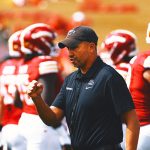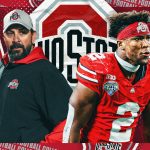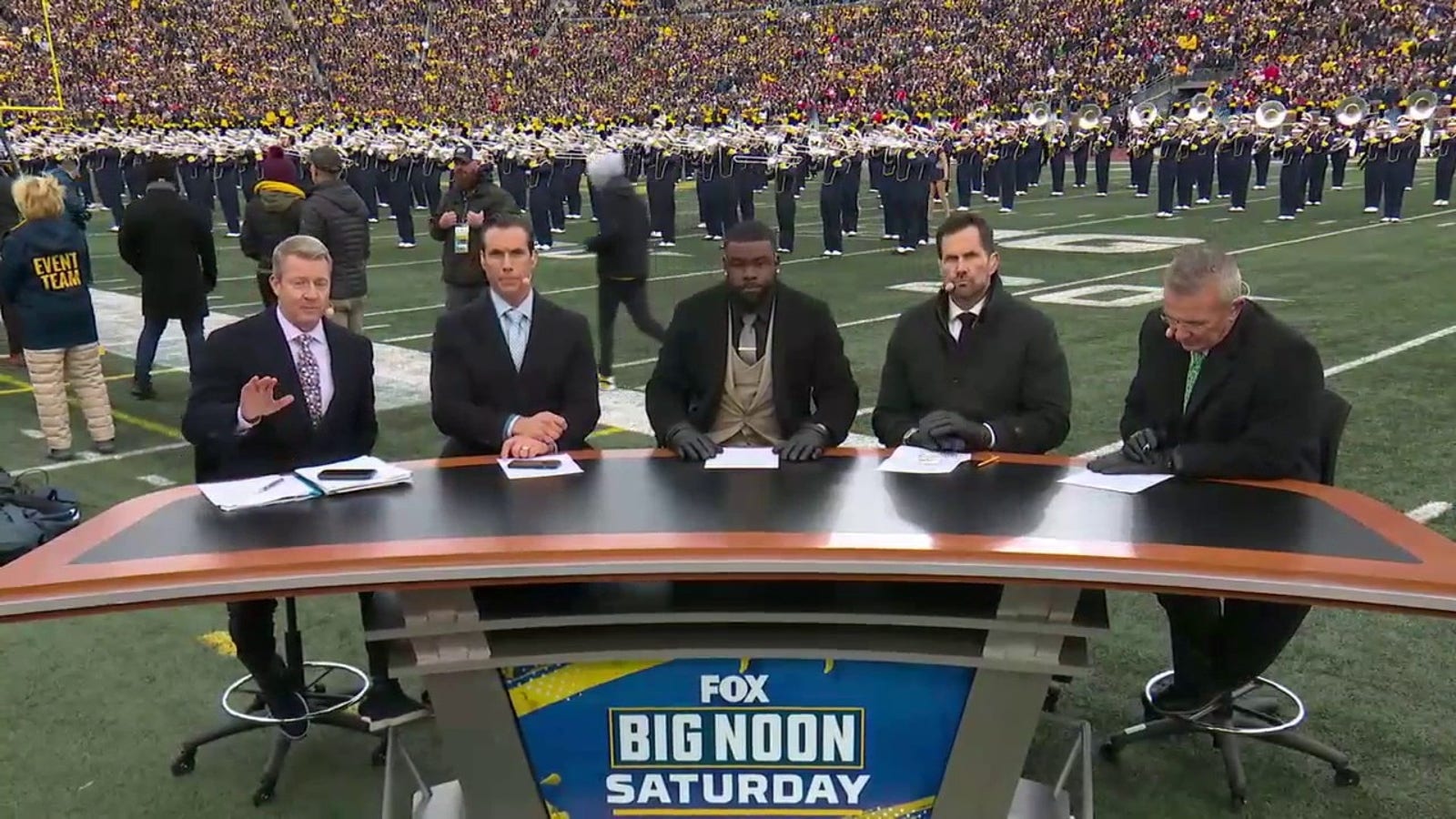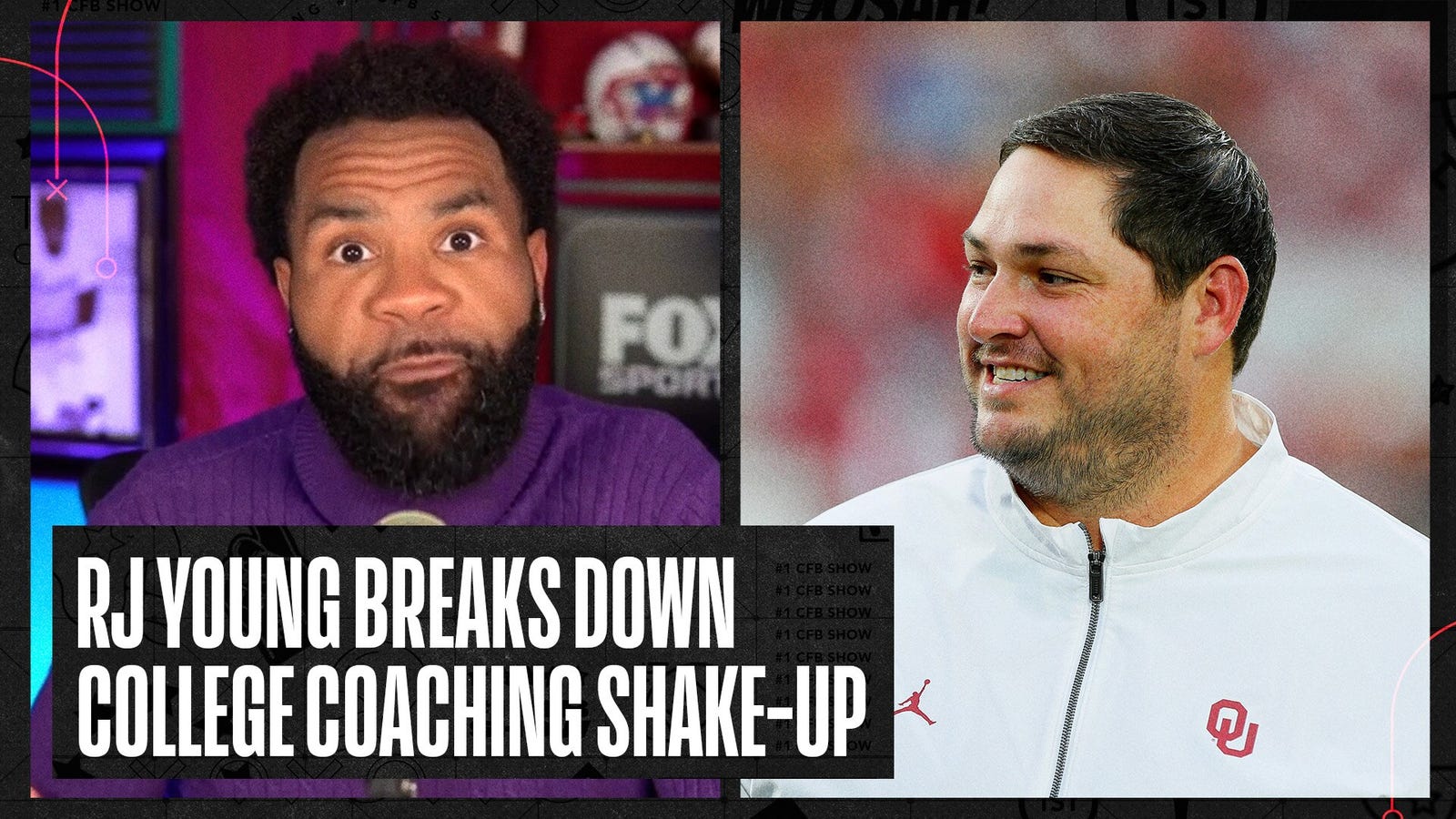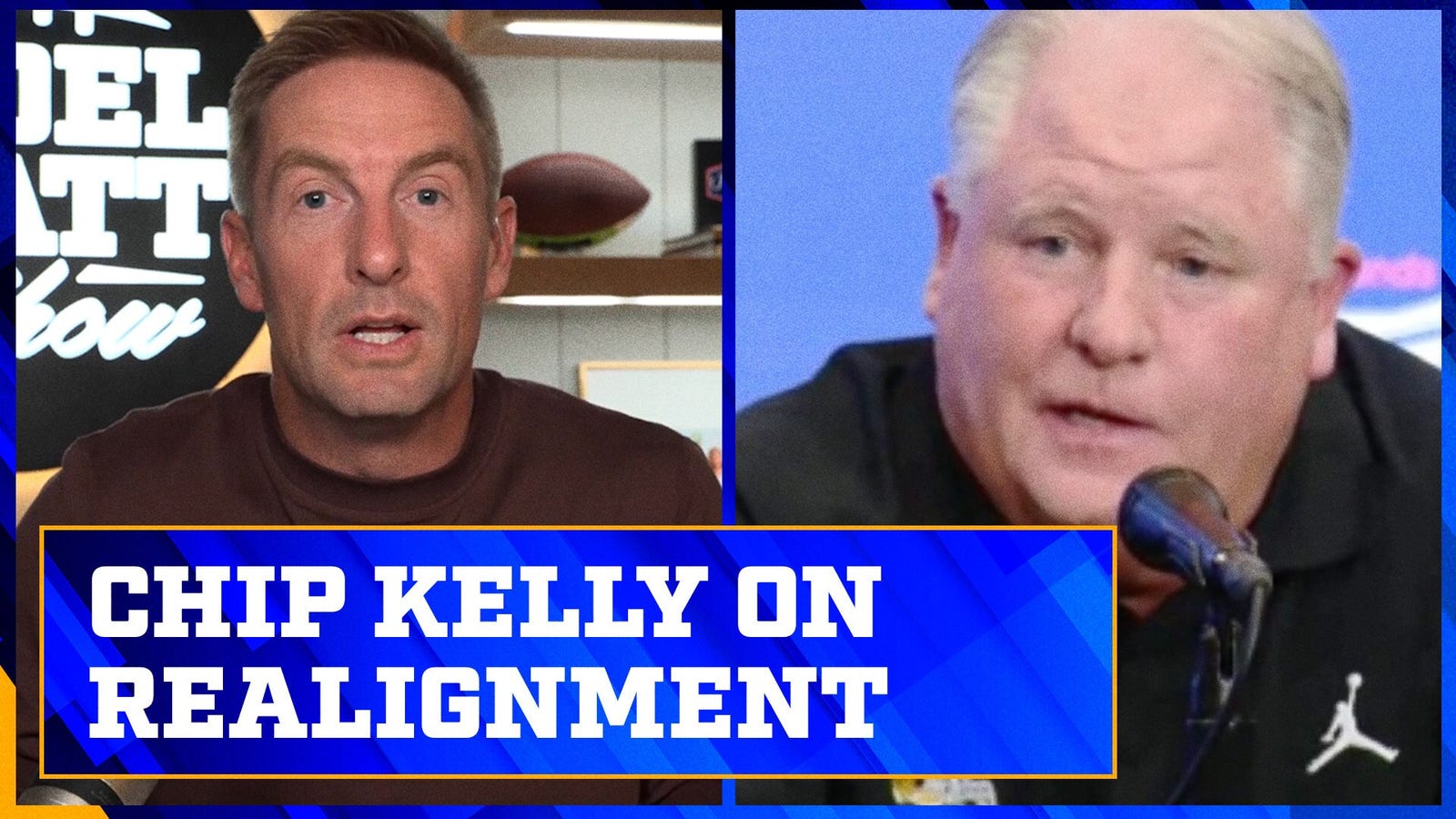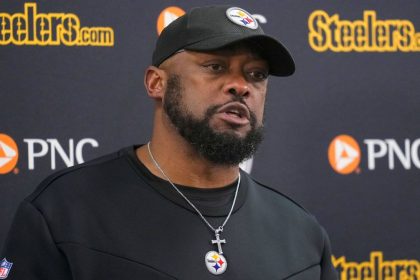It wasn’t long ago that athletic directors would generously give their head coaching hires five or six years to either rebuild a program or prove that they can win. After all, it took time to stack recruiting class after recruiting class and manage a roster toward the goal of winning big.
That is no longer the case in college football, with the window for head coaches to succeed steadily shrinking.
[2023 college football coaching changes]
It’s one thing to take over a rebuilding program and struggle in Year 1, it’s another thing entirely if the struggles continue through the follow-up campaign.
ADVERTISEMENT
That’s the kind of environment all head coaches are dealing with, particularly those who were hired as part of this most recent cycle in 2023.
There were quite a few big openings this year — who saw Texas A&M ponying up $76 million-plus to buy out Jimbo Fisher? This drove the market to turn itself over with a rash of churn among the Group of 5 ranks that brought in several surprising names into the sport as head coaches.
Who made the best hire? Who whiffed on filling their opening?
Here are grades for all 18 hires in 2023:
Duke: Manny Diaz
The Duke football job was once considered a bit of a dead-end for coaches, one of the most difficult in the Power 5 ranks. That thinking has changed recently, however, both because the two most recent hires have won a solid amount and because the school has increased its investment in resources on the gridiron. Diaz did a phenomenal job elevating Penn State‘s defense into one of the best in the country and certainly knows the blueprint to run a Triangle program well from his time in the ACC. He did a solid enough job rebuilding Miami before being caught up with expectations and a changing administration, but has the chance to keep the Blue Devils rolling right along as a consistent bowl team in the future. Grade: B
Houston: Willie Fritz
Fritz turned a junior college program into a powerhouse and won big. He turned around a DII school and won big. He turned around FCS and Group of 5 programs and won at a historic rate, too. The guy just flat-out knows how to build winners and should be able to do the same with the resources and recruiting footprint that Houston offers at the Power 5 level. Grade: A
Indiana: Curt Cignetti
To say Cignetti is a coach’s coach might be an understatement, given that his father is in the Hall of Fame and his brother has been a longtime Power 5 offensive coordinator. He’s a great evaluator of talent — especially players overlooked coming out of high school — and tends to have a great vision for how to mount a turnaround with an under-resourced program. The Hoosiers gig is a tough one given how stacked the Big Ten is, but that is a challenge that Cignetti will embrace rather than scratch his head over. Grade: B+
Michigan State: Jonathan Smith
The Spartans have been a mess the past couple of years and that’s even taking into account the brief resurgence that saw them go to a New Year’s Six Bowl a few seasons ago. In landing Smith, however, MSU has a chance to rebuild things sustainably and to a level where you wouldn’t be surprised to hear they’re in contention for a spot in the expanded College Football Playoff with some regularity. Smith’s personality fits the ethos of East Lansing well, and his offensive background should do wonders for a program that has needed a boost on that side of the ball for some time. Grade: A
Mississippi State: Jeff Lebby
It’s understandable that MSU would want an offensive-minded coach after such a difficult season under Zach Arnett, but Lebby might be the most low-floor/low-ceiling hire in the Power 5 this cycle. Sure, the Bulldogs will play super-fast and likely be able to put up some points in some games, but it’s hard to expect a first-time head coach to elevate the program back to even what it was under Dan Mullen given this is one of the most difficult jobs in the SEC. Throw in the tone-deaf nature that Lebby has had when responding to father-in-law Art Briles surfacing in the headlines and this feels like a bigger headache than it should be in Starkville. Even some initial success and an odd big win or two should be measured against the difficulty Lebby will have in sustaining a winning program beyond three or four years. Grade: D
Northwestern: David Braun
Two things can be true when it comes to Braun. One, he did a fantastic job this season as interim coach and fully deserved that tag to be taken off after earning Big Ten Coach of the Year and guiding a previously 1-11 team to a bowl game. Two, it’s possible that the changing nature of the Big Ten and this already tough job getting tougher could lead to the good vibes wearing off quickly. He’ll be given time to build up the program in a manner he sees fit, but the number of close wins the Wildcats had this year would indicate that some bumps in the road are to be expected. Grade: B-
Syracuse: Fran Brown
Brown was probably this cycle’s most outside-the-box hire, having no coordinator experience prior to landing a Power 5 gig like this. He’s a tenacious recruiter, however, and knows the Northeast like few others in college football. So it wouldn’t surprise anybody if the roster is upgraded quite a bit (landing Kyle McCord out of the portal is a good sign). Still, this is among the most difficult jobs given the location and resources in the ACC, and it’s a big challenge for Brown to make the Orange a consistent winner. Grade: C+
Texas A&M: Mike Elko
After going as splashy as possible with the hire of Jimbo Fisher, the Aggies have followed things up with one of the most solid and sensible hires they could make. A former assistant in College Station, Elko knows the landscape well and proved his head coaching chops in turning around Duke from five wins in two years before he arrived, to 16 wins and back-to-back bowl appearances. In many ways, this is somebody who A&M faithful will enjoy having as their head coach much more than his predecessor and will remind a lot of folks of R.C. Slocum both on and off the field. Grade: B+
Boise State: Spencer Danielson
It was an interesting fall on the blue turf, as the Broncos suffered a few one-score losses and jettisoned Andy Avalos mid-year before he could get things turned around. Danielson was a nice shot of energy, however, and led the program to a surprising MWC title to get the interim tag taken off. It feels like the program is basically running things back sans Avalos in charge, which feels a lot more uncertain than it should be for this Group of 5 powerhouse. Grade: C+
James Madison: Bob Chesney
The 46-year-old has worked his way up the ranks and won in a lot of places off the beaten path, including landing several big upsets while guiding Holy Cross the past six seasons. He knows the region well and always seems to be well-prepared. A Sun Belt gig can be difficult given how competitive the league has become, but Chesney has all the attributes to lead the Dukes to continued success. Grade: B+
Louisiana-Monroe: Bryant Vincent
Vincent did a solid job as UAB’s interim head coach in 2022 when Bill Clark surprisingly stepped down, and he knows the region well as a longtime assistant. This might be one of the toughest jobs in all of FBS, however, so it’s an uphill battle to win in Monroe from the moment he signed up. Grade: B
Middle Tennessee: Derek Mason
Rick Stockstill was in Murfreesboro for so long that it’s strange to even have a new head coach at MTSU, but it’s impressive that the Blue Raiders were able to bring in Mason. His overall record isn’t special, but lasting seven seasons at Vandy with two bowl games is notable, and he knows the area well. His defensive mind will be beneficial in CUSA and capable of getting the program back at the level it wants to be. Grade: B
New Mexico: Bronco Mendenhall
Mendenhall is a turnaround specialist, having rebuilt both BYU and Virginia from struggling programs into consistent winners. That’s notable given the challenges that he’ll face at UNM, but the good news is that he knows what it takes to win in Albuquerque, having been a part of Rocky Long’s staff during the Lobos’ most successful stint in the early 2000s. Grade: A-
Nevada: Jeff Choate
Choate’s name has come up for several MWC gigs given all the stops he’s had out West, and his work elevating Montana State into a top-five program by the time he left will serve him well in trying to get the Wolf Pack back on track. Grade: B+
Oregon State: Trent Bray
It’s not often that a school goes from one alum coach to another, but the Beavers are clearly counting on those ties to Corvallis in elevating Bray to head coach. There’s a lot of uncertainty surrounding the program moving forward, but if anybody can maximize what OSU can do on and off the field, it’s the former undersized linebacker who helped lead the team to unprecedented success in the early 2000s. Grade: B
San Diego State: Sean Lewis
The last time the Aztecs finished among the top 50 teams in FBS in scoring offense was in 2017, and it’s been really difficult to watch the team on that side of the ball ever since. Lewis will change that in a hurry and put plenty more butts in seats at the program’s sparkling new stadium at the same time. Grade: A
Tulane: Jon Sumrall
It’s going to be hard for any coach to take over and build upon what Willie Fritz did in New Orleans after winning the AAC and Cotton Bowl last year, but Sumrall has the attitude and aptitude to succeed at doing just that. He’ll improve the Green Wave defense overnight, and provided he can sort out the offense, he can keep Tulane in the running to win the league with regularity. Grade: A-
Troy: Gerad Parker
One of the bigger surprises of the cycle, the former Notre Dame OC takes over a Trojans program that has been operating at a high level the past two seasons and will sport high expectations right away. Parker feels to be more in the mold of former head coach Neal Brown and could help juice an offense to keep the team atop the Sun Belt. Grade: B-
UTEP: Scotty Walden
The Texas native has done well at lower-level programs and took Austin Peay through a conference transition and into the NCAA playoff. UTEP is a tough gig, but if anybody can establish the relationships needed in the area and get a more exciting brand of offensive football to take place at the Sun Bowl, it’s Walden. Grade: B
Wyoming: Jay Sawvel
The retirement of Craig Bohl was a surprise that led to an unexpected opening, but the Cowboys moved quickly to install a longtime defensive coordinator to take over in Sawvel. He is a first-time head coach, but the former Mount Union linebacker knows the program well and will keep the team’s identity intact moving forward. Grade: B-
Bryan Fischer is a college football writer for FOX Sports. He has been covering college athletics for nearly two decades at outlets such as NBC Sports, CBS Sports, Yahoo! Sports and NFL.com among others. Follow him on Twitter at @BryanDFischer.
COLLEGE FOOTBALL trending

Get more from College Football Follow your favorites to get information about games, news and more

